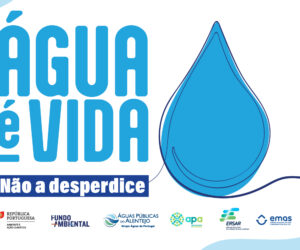Opinion (Rogério COPETO / Official GNR): GOOD PRACTICES OF BRAZILIAN MILITARY POLICE.
Lately I have come to the attention various initiatives developed by Military Police (PM) Brazil under the community policing.
Lieutenant Colonel of the GNR
Master in Law and Security and Homeland Security Auditor
Head of the Education Division / Command Doctrine and Training
What I propose to make known in this Article, because they have similarities with some existing in our country, sharing the same goals of crime prevention and crime reduction.
Even before making known those good practices the Brazilian PM and without wanting to be very thorough in densification of the Brazilian internal security system, it should be noted that in Brazil, its fundamental law assigns responsibility for internal security to five different security forces: The Federal Police; The Federal Highway Police; The Federal Railroad Police; The Military Police and; The Civil Police. Since the first three have national character and the last two state character, taking into account the case-of a federal country consisting of states.
With regard to PM, are there 27 different corporations, as many federative units has Brazil, whose function is to ensure the public safety of their respective populations, through the "ostensible policing" (the same as "visible policing"), constituting a Detachments Policing Ostensive (DPO) or detachments of military police (DPM).
The "ostensible policing" is constituted as a mode of exercise of police activity carried out by uniformed and visible military, as opposed to covert policing or civil, also making use of vehicles characterized, clearly identifiable throughout the population, whose goal is visibility among the population, as a deterrent as the offense lei, contributing to the sense of security, preventing crime, by demonstrating the strength and state presence.
In addition to the "ostensible policing" the PM also uses the community policing model, termed as "Community Policing" which aims to bring the military to the population it serves, on the premise that both the PM as the community must work together to identify, prioritize and solve problems of insecurity felt by populations, allowing a custom policing that extends the role of security forces, producing a greater impact on the achievement of initiatives that meet the expectations of making communities safer, providing a service to the community in partnership with civil society, in order to improve the quality of life of citizens.
In this perspective the social project was created over 50 years of existence in Brazil, aimed at youth 14 to 18 year old named "Little Guard" assuming the PM as a key partner in the implementation of goals.
There are several variants of the "Little Guard" and that those associated with the PM are intended to identify young people of both sexes and from disadvantaged economic status, offering them a complement to school education, through extra curricular activities, for time occupation who are not in school, receiving training for integration into the labor market, coupled with discipline, citizenship and social responsibility, thereby contributing to its removal of criminals and / or criminal behavior, It is the example of these initiatives "Guards Mirins" the PM Porto Velho ou do Paraná, whose trademark is the use of a uniform, identifying them as "Guards Mirins".
In Portugal the initiative that most closely resembles the design "Little Guard" is known "Choices program" (ON), of government initiative and nationwide, created in 2001, "whose mission is to promote social inclusion of children and young people from vulnerable socio-economic contexts, for equal opportunities and strengthening social cohesion".
In a first implementation phase was allocated to the EP "Crime Prevention and youth insertion of the most troubled neighborhoods of Lisbon Districts, Oporto and Setúbal", having been implemented between 2001 and 2002 next to 50 projects, covering 6.712 recipients, lying currently in its 6th generation, which run until the end of next year, promoting financing 90 projects, involving a total of about 75.000 participants, mobilizing more than 840 partner entities between municipalities, Parish, groups of schools, child protection committees and youth at risk, the Institute of Employment and Training (IEFP), immigrant associations, and private institutions of social solidarity, among others, which they are not security forces included, instead of the "Guarda Mirim".
Another initiative developed by the PM is "Neighborhood Partnership Program" (PVS) the Military Police of São Paulo, which aims to increase the sense of security of the population of a particular community, through the identification of a "Tutor”, identified as a citizen representative of the community, receiving training from PM, on crime prevention, also participating in meetings organized by PM, which also carry out periodic visits to the "Tutors", narrowing relationships and allowing the PM to identify which existing community safety issues, promoting their solutions. The adhesion to the PVS is voluntary and materialized by a name plate placed in the area where it is implemented PVS, with the words "WATCHED BY AREA COMMUNITY - COMMUNICATE ALL ATTITUDE TO THE POLICE IMMEDIATELY SUSPECTED", also serving as a deterrent.
The initiatives of "neighborhood watch", as is the PVS PM São Paulo, there are all over the world, such as the United States Units, assuming different names such as "Neighborhood Watch Program"Or o"Community Policing & Neighborhood Watch", in the UK there are also several examples of initiatives associated with "neighborhood watch" such as "Neighbourhood Watch"Or o"Neighbourhood Watch Scotland"France and the initiative is the largest implementation"Neighbors alert".
In Portugal the only example of "neighborhood watch" is the GNR program that we have made known in our article demoninado "Interlocutor Security Location" (ILS), publicado no dia 13 October 2015, having been created in ILS 2012 with the objective to promote the important role of citizens in their own safety and their community.
For this purpose the GNR collected the teachings of best practices on good "neighborhood watch" applying them to the Portuguese reality, providing training on safety, a group of citizens, with influence in your community, in order to prevent crime and vandalism, reporting suspicious incidents to GNR, but may not intervene in such situations, waiting for the military presence of the GNR, having the time of their implementation been formed 1.700 ILS, presumed to still be in office and to contribute to the security of your community in close connection with the GNR.
We ended up with another good practice of PM of Sao Paulo called "PM with you", which is no more than an application for smartphone, which can be downloaded for free, and provides the telephone contacts and e-mail from the nearest barracks PM, its location and its path, and that despite being an initiative easily implemented also by our security forces, because they have the geographical location of their posts and police stations, so we know there is neither the GNR or the PSP.
All these good practices that we know and that exist "lands of Santa Cruz", tal como fish, born fruit of the changes that communities have suffered, becoming daily depending on the pace of globalization and the various threats and conflicts of various kinds, forcing the GNR or PM to adapt to new realities, knowing that the safety of the people is not only their responsibility, but also of all citizens.

























